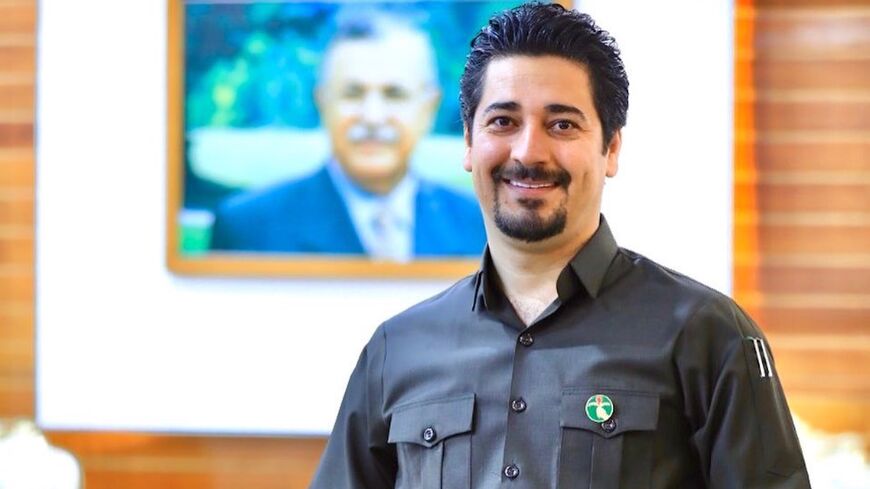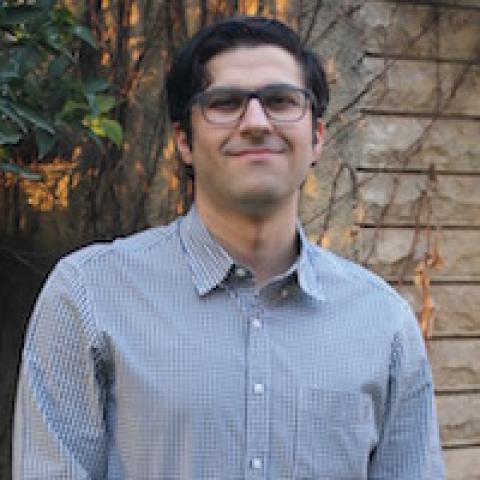A member of the Kurdistan Region of Iraq’s parliament said he survived an assassination attempt on Monday, though a Kurdish military commander later disputed the account. The ordeal occurred amid tensions and dialogue between the two main Kurdish parties in northern Iraq.
What happened: Karwan Gaznay, a member of the Kurdistan parliament for the Patriotic Union of Kurdistan (PUK), said in a tweet on Tuesday that he "survived an assassination attempt” the night prior. His driver was injured and they are “waiting for the reaction of the government,” per the tweet.
The incident took place in the town of Koya located in Erbil province. It is under investigation, according to the PUK-affiliated Esta news agency.
The Kurdish news outlet NRT, which is affiliated with the opposition New Generation party, reported that the shooting occurred around 10 p.m. local time on Monday at a checkpoint manned by Kurdish internal security forces known as Asayish.
NRT later reported on Wednesday that Zana Khalid, a commander in the region's peshmerga forces, disputed Gaznay's account of the incident. Khalid, an affiliate of the Kurdistan Democratic Party (KDP), said the confrontation occurred when Gaznay's vehicle crashed into his own vehicle and Gaznay's driver began hurling insults.
Sulaimaniyah province is controlled by the PUK, while Erbil province is controlled by the KDP. The KDP is the largest party in the Kurdistan Regional Government (KRG), followed by the PUK. Koya, where the shooting occurred, is close to the border separating the two parties’ territories.
Why it matters: The shooting occurred at a time of significant tensions between the KDP and the PUK. Tensions between the two parties are not new but were raised significantly in October when PUK counterterrorism officer Hawkar Jaf was killed in a car bombing in Erbil.
The current tensions have multiple dimensions. One area where the two parties disagree is over energy policy, specifically the KRG’s independent oil exports, according to Aras Masifi, an independent Kurdish blogger.
“The PUK believes it has had little say and involvement in the KRG's oil policy in recent years,” Masifi told Al-Monitor. “That is why the PUK advocates a common uniform energy policy with Baghdad in the hope of being able to have more say and participation in Baghdad.”
The tensions over oil have worsened since the March decision by the Paris-based International Chamber of Commerce that ruled Turkey had to pay damages to Iraq for accepting unauthorized oil imports from the Kurdistan Region. The decision relates to the Baghdad-based federal government’s efforts to exert its authority over the KRG’s independent oil sector. Much of the region’s oil is in KDP territory.
“Especially after the Paris court decision, the PUK has become louder and clearer in its pro-Baghdad rhetoric,” said Masifi.
The KDP currently holds the positions of prime minister and president in the KRG, while senior PUK member Qubad Talabani is deputy prime minister. The tensions also relate to the division of power within the KRG, according to Masifi.
“(Talabani) believes he has little power to fill government posts. But the PUK would also like more autonomy from the KDP/Erbil when it comes to the budget and procurement law for large construction projects,” he said.
The two parties have also been fighting over the region’s election laws and when to hold parliamentary elections, which are now scheduled to take place in November. PUK officials stopped attending KRG Cabinet meetings last December due to the tensions, according to the KDP-affiliated news outlet Rudaw.
The assassination attempt on Syrian Kurdish leader Mazlum Kobane in Sulaimaniyah last month further exacerbated tensions between the two parties. Kobane blamed Turkey for the attack, though the country denied this. The KDP is historically close to Turkey, while the PUK has good relations with Kobane’s Syrian Democratic Forces, as well as the Kurdistan Workers Party (PKK). The PUK blamed the KDP for the attack on Kobane, Amberin Zaman reported for Al-Monitor at the time.
The attack on Gaznay is not the first to occur amid these tensions. NRT reported a “noticeable rise” in shootings, kidnappings and physical assaults during the month of April. The outlet pointed to the assault of Erbil-based lawyer Mohammed Sofi and the killing of KDP official Abdullah Kuekha Mubarak’s son, among other incidents.
“Tensions between the two ruling parties of the Kurdistan Region have provided opportunities for some to settle scores, exploiting the deteriorating security situation,” NRT reported.
A particularly high number of political assassinations have occurred in Sulaimaniyah since 2021.
Know more: The intra-Kurdish tensions in Iraq could dissipate soon. On Sunday, PUK ministers returned to the Cabinet meetings. The Cabinet promptly passed a measure to centralize revenues, expenditures and salaries across the region. This had been a demand of the PUK, according to Rudaw.
On Tuesday, PUK and KDP political leaders met again in Sulaimaniyah to discuss the November elections.
Editor's note: this article was updated on May 17, 2023 to include a dispute of Gaznay's assassination attempt claim.







